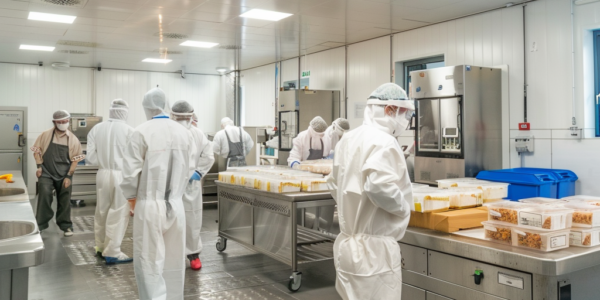Food Safety Recalls and Alerts: Key Updates from December 7-9, 2024
Stay updated on the latest food safety recalls and alerts from December 7-9, 2024. Key incidents include a Salmonella outbreak linked to Raw Farm brand raw milk affecting 171 cases, and product recalls from Dairyland Produce and Biscuits Leclerc in the U.S. and Canada. Learn how to protect yourself from foodborne illnesses and allergic reactions.
E. coli Outbreak Linked to McDonald’s Expands to 75 Cases Across 13 States
An E. coli outbreak linked to McDonald’s Quarter Pounders has affected 75 individuals across 13 states, leading to hospitalizations and one death. The CDC is investigating, with early indications pointing to contaminated raw slivered onions. McDonald’s has removed the Quarter Pounder from menus in several states and Taylor Farms has issued a recall for yellow onions. Health officials urge consumers to stay informed about food safety and seek medical attention if experiencing symptoms.
AppET Rajasthan Awards 2024 Now Open for Entries Celebrating Industry Excellence
The AppET Rajasthan Awards 2024 are now open for entries, celebrating excellence in sectors like Government, Health, and Food Safety. This prestigious event offers businesses a platform to showcase innovative practices and gain recognition for their contributions. Participants are encouraged to submit projects emphasizing innovation and community impact, while also addressing critical issues like food safety and microbial contamination. Join industry leaders in this opportunity to connect and foster advancements in your sector.
Washington State Department of Health Launches Online Tool for Reporting Food Poisoning Cases
The Washington State Department of Health (DOH) has launched the Foodborne Illness Notification System (FINS) to streamline the reporting of food poisoning cases and safety concerns. Learn how to report food-related issues and contribute to a safer food environment in Washington.
Study Finds Listeria monocytogenes Bacteria Persist in Ready-to-Eat Food Production Environments
A recent study by scientists from the Quadram Institute and the UK Health Security Agency found that Listeria monocytogenes bacteria can persist in ready-to-eat food production environments despite cleaning. The researchers discovered stable bacterial populations coexisting with L. monocytogenes, suggesting the need for new strategies to alter entire bacterial populations for complete pathogen elimination. The study’s lead scientist, Dr. María Díaz, emphasized the importance of cleaning in reducing bacterial load and mitigating cross-contamination, while also noting significant differences in bacterial populations in areas of the facility kept at different temperatures.





